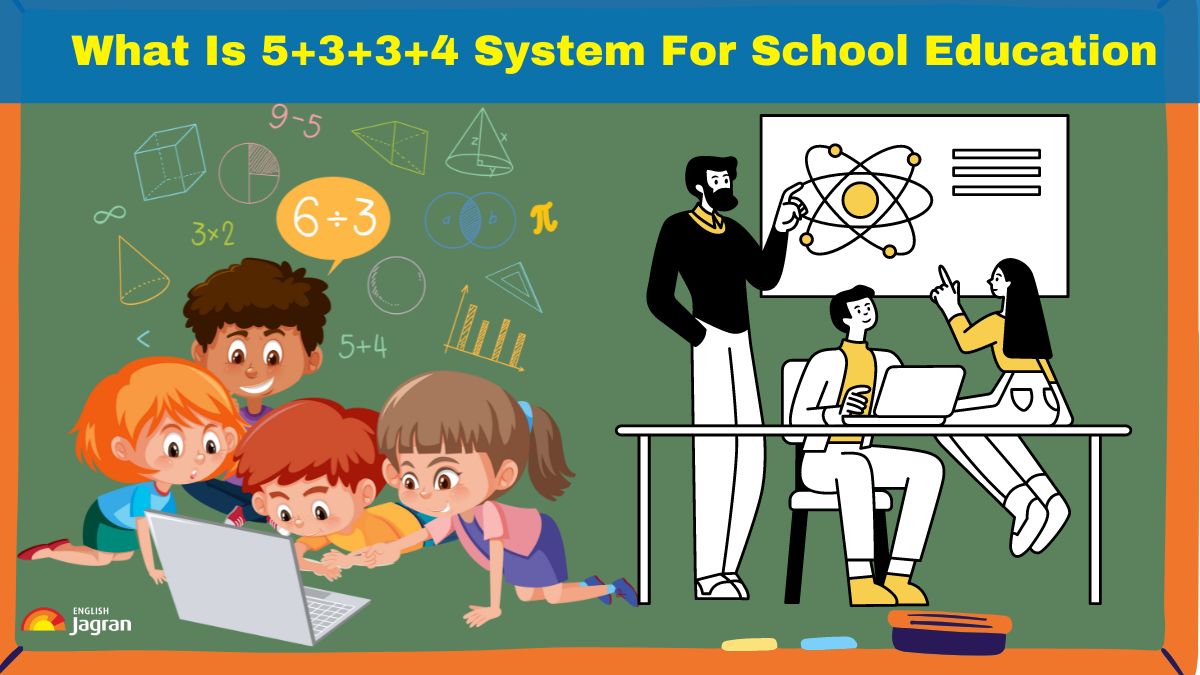- By Ritesh Kumar
- Mon, 17 Apr 2023 10:51 AM (IST)
- Source:JND
Major changes have been made regarding school education under the National Education Policy (NEP). Recently, the Education Ministry released a "pre-draft" of the National Curriculum Framework (NCF) and invited suggestions from stakeholders including students, parents, teachers, scholars, educational institutions, subject experts, and others. The draft NCF is being prepared by a panel headed by former ISRO chief K Kasturirangan.
The structure of Indian education which used to be 10+2 will now run according to the 4 stages. The new structure will be 5+3+3+4. According to the new structure under the National Education Policy 2020, students will spend five years in the foundational stage which will comprise Kindergarten to class 2, three years in the preparatory stage comprises classes 3 to 5, three years in the middle stage comprises classes 6 to 8, and four years in the secondary stage comprises classes 9 to 12. An attempt has been made by the government to bring flexibility to the education system based on this new formula. Here are the four stages:
Foundational Stage (Kindergarten To Class 2)
This is the basic stage which students will reach in class two covering pre-primary. The students will be taught manners, personal and public hygiene, and learning through play. There will be no assessment methods that burden the child. NCF has suggested that two important assessment methods for the foundational stage are observations of the child and analysing of artifacts that the child has produced as part of their learning experience.
The further draft suggested that the teacher should have the ability to design different kinds of assessments for the same learning outcome and use each assessment appropriately for the children. Assessment processes will be designed in such a way that they are a natural extension of the learning experience for the child
Preparatory Stage (Classes 3 to 5)
In this stage classes, 3 to 5 will be covered. Written tests will be introduced with a variety of assessment methods including portfolios and self-assessments. Assessment methods will be used to promote learning and portfolios will be used to track student progress. There will be a comprehensive summative assessment of the student's readiness to enter the next stage.
Middle Stage (Classes 6 to 8)
In the middle stage classes, 6 to 8 the classroom assessment will be done based on projects, experiments, presentations, debates, role plays, investigations, journals, and portfolios. Regular summative assessments will be held to help students boost their learning at logical intervals. NCF also suggested that summative assessments comprising multiple-choice questions and constructed responses like short and long answers may be used periodically.
Secondary Stage (Classes 9 to 12)
In this stage classes, 9 to 12 comprehensive classroom assessments and regular summative assessments will be conducted with a focus on student self-assessment. The assessment will be designed using case-based questions, simulations, and essay-type questions. The draft highlights that students should be encouraged to monitor their learning and use feedback to adjust, adapt and decide their own learning strategies. The draft also suggested that students also be prepared to undertake the board examinations and other selection tests to gain access to higher education and livelihood opportunities.

